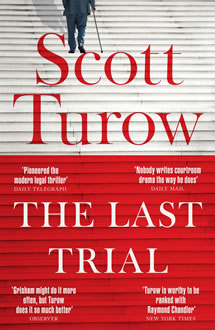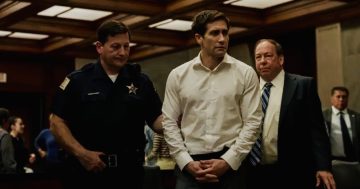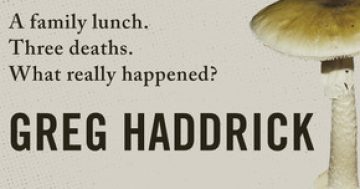Reviewed by Robert Goodman.
By Scott Turow, Pan Macmillan.
 Time and time again, since the release of his debut Presumed Innocent, Scott Turow has shown himself to be the master of the American courtroom drama. They are stories that take the processes and procedures of the courtroom as their driver but also as a mechanism to reveal humanity with all of its flaws. And his latest book, The Last Trial does all this and more, once again masterfully.
Time and time again, since the release of his debut Presumed Innocent, Scott Turow has shown himself to be the master of the American courtroom drama. They are stories that take the processes and procedures of the courtroom as their driver but also as a mechanism to reveal humanity with all of its flaws. And his latest book, The Last Trial does all this and more, once again masterfully.
Lawyer Sandy Stern is preparing to defend his old friend, Nobel Prize winner Kiril Pafko from a range of charges associated with a new cancer-fighting drug. After a life devoted to the law, Sandy at eighty-five has come to the end of the road, and this will be his last case. Assisted by his legal partner and daughter Marta, facing off against a familiar prosecutor and facing a judge who is also an old friend. The case itself revolves around a cancer drug that Pafko has developed and which has possibly led to a deadly allergic reaction in some patients. There are questions around falsified data in the testing of the drug, whether Pafko lied to the Food and Drug Administration and then whether he sold shares in the company when he learnt that the controversy was going to become public. The narrative follows the case through each of these different charges, and while this could have been dry and uninteresting, Turow makes it anything but.
There is plenty to chew on here. The way in which potentially life-saving drugs are tested and released into the market, the role of big pharma in influencing that process, the constant trade-off between the efficacy and risks of particular drugs. Turow masterfully delivers this information through the cut and thrust of courtroom process, never letting the reader feel like they are being lectured to or wading through an exposition dump. This partly because what drives and underlies all of the action is the personal – in particular Pafko’s various personal relationships, and how Sandy uses his understanding of those to influence his strategy.
The character of Sandy Stern has been a Turow stalwart since Presumed Innocent in 1986 and has appeared in every Turow novel in some capacity ever since. Unlike some private detectives who never seem to age, Stern has aged in something approximating real time. A cancer survivor himself (and still alive thanks to illegal imports of Pafko’s drug), but also recovering from an car accident a few months earlier, there is some suspicion that he is no longer firing on all cylinders in court. But Sandy still has a few tricks up his sleeve, and the story also takes some time to dig into Stern’s early life in Argentina and his family’s move to the United States. As much of the plot behind the case revolves around Pafko’s philandering and relationship with his son, Stern has plenty of time to think about his own family relationships and the impact on those relationships of his obsession with the law.
The courtroom provides a built-in structure to deliver drama. Turow has shown time and again how to use this milieu to do so much more. He skilfully weaves the interplay between the formalised combat of the courtroom and the inherent human messiness that sits behind it – fragile egos, simmering resentments, emotional blackmail and misguided nobility. At the same time he manages to shine a light on an arcane bureaucratic process that impacts all of our lives. And all this centred around a flawed, brilliant, irascible character of Sandy Stern. The Last Trial is a fitting send off for a great character and another winner for Turow.
This and 500 more reviews can be found at www.pilebythebed.com.











